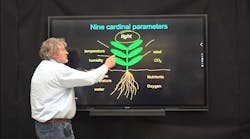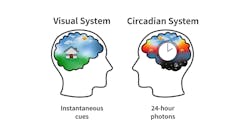Aixtron just announced an MOCVD system order from the University of Duisburg-Essen, and plans to install the reactor by the end of this quarter. The University of Duisburg-Essen’s Center for Semiconductor and Optoelectronics will use the system in a research project focused on nitride semiconductor nanowires for LEDs and solar cells.
The project called NaSol (Halbleiter-Nanodrähte für Solarzellen und Leuchtdioden which translates to semiconductor nanowires for solar cells and LEDs) has been funded by the Objective 2-competition NanoMikro + Werkstoffe NRW. The project seeks to improve efficiency in LEDs and solar cells through production of GaN-bsaed and other nitride-based nanowires.
The researchers hope to develop a MOCVD-based nanowire fabrication technique that can replace more expensive semiconductor manufacturing techniques. Nanowire-based materials are very efficient in terms of both absorbing and emitting light, and may offer benefits in energy transport according to the university team. And the MOCVD system can offer the benefit of lower-cost substrates.
An Axitron support team will commission the new system at the University of Duisburg-Essen Semiconductor & Optoelectronics Center in Duisburg, Germany. The system will be configured for 3x2-in operation and will include an Argus multichannel pyrometer.
Dr Franz-Josef Tegude, Chair of Semiconductor Technology at the university, said, “We selected the AIXTRON CCS system as part of the University’s initiative to acquire a nitride material system for the nitride nanowire NaSoL Project. The reactor’s combination of features including the minor/low rotational velocity is also very impressive."
Partners in the NaSoL project include the University of Duisburg-Essen’s Center for Semiconductor and Optoelectronics, the University's Department of Electronics Materials and Nanostructures, and Aixtron. The state of Northrhine-Westfalia is also supporting the project.




